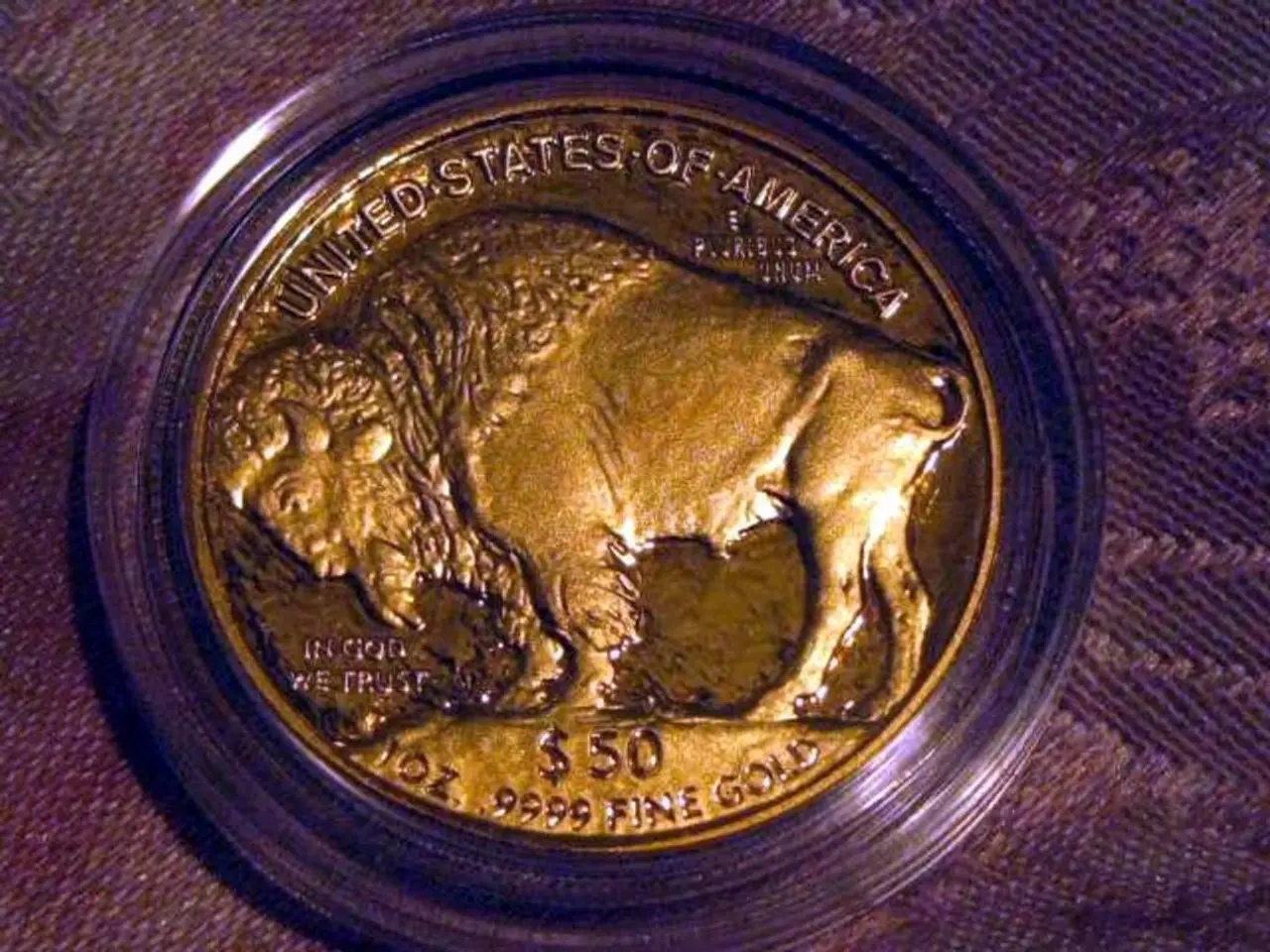Economist Rogoff Predicts Dollar's Global Dominance Won't Endure Until 2050
Unraveling the Dollar's Reign: A Top Economist's Take
Chin up, greenback! The reign of the almighty dollar as the dominant global currency could be waning, according to renowned economist Kenneth Rogoff. When quizzed about the longevity of the U.S. buck's supremacy in areas like foreign exchange reserves and international debt denomination by UniCredit, the Harvard bigwig wasn't shy about his prediction: "Nope, not gonna happen." He then dropped the mic: "China's on a roll, man, and they're gunning for your spot."
So why does Rogoff believe China's currency, the yuan (or renminbi, for the fancy ones), is poised to dethrone the dollar? Well, it's a multi-course meal of factors, each more delicious than the last.
First course: U.S. fiscal feast or famine
There's a storm brewing, and it's called U.S. debt. If current spending habits don't change, Rogoff predicts an impending debt crisis within the next four to five years. Our national kitty's credit card bill is skyrocketing, and that inherent risk could crack the dollar's facade of invincibility. The massive debt, coupled with the potential for crippling inflation and financial market havoc, could soften the greenback's grip on the global financial system.
But wait, there's more! Political bickering over budgets and borrowing limits is enough to make even the bravest investor lose their nerve. When the U.S. Congress can’t agree on whether the light should be on or off, it creates uncertainty for the world's markets, eroding confidence in the dollar.
Second course: Global growth gusto
The world's economy is like a roller coaster right now, and we're all hanging on for dear life. Trade tensions, unresolved geopolitical conflicts, and tariff regime changes are shaking things up, slowing global economic growth. Slower economic expansion than in previous years means other currencies might outshine the dollar in international trade and finance.
Third course: China's renaissance
China is using the opportunity to fine-tune its economic strategy and shed its dollar dependency. They're working on beefing up their currency by making it a viable alternative global currency, easing some debt ties with the U.S., and diversifying their reserve holdings. The more international clout China gains, the more influential their currency becomes, making the dollar seem, well, old school.
China's Belt and Road Initiative is another feather in their cap. By promoting the use of the yuan in global transactions and financing, they're increasing its visibility and cracking open the door to the world of international finance – all at the expense of the dollar.
Fourth course: Financial flexibility
China is also focusing on improving its financial markets and exchange rate systems to attract more global investors. By embracing change, China is setting itself up for success, potentially positioning itself as a financial powerhouse that can flaunt its currency with pride.
So, there you have it, folks. The U.S. dollar's dominance could crumble if the facts over breakfast suggest it's time for China to take center stage in the world of finance. Buckle up, it's gonna be a wild ride!
Sources: ntv.de, RTS, [1], [2], [3]
- As the Chinese yuan gains traction in global trade and finance, traditional industries, finance, and businesses may find it advantageous to adapt to this emerging financial landscape, reducing the U.S. dollar's dominance.
- The Commission, in light of the potential threat to the dollar's supremacy in the financial sector, might also consider a directive on the protection of workers in industries that could be affected by the shift away from the use of the U.S. currency, such as those related to ionizing radiation (a risk that China's growing industries may be subject to).






